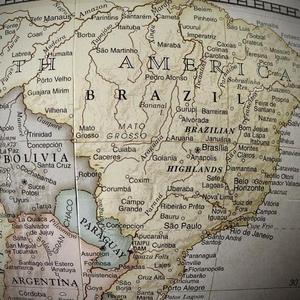JBS to more than double biodiesel output with new plant in Brazil

July 31, 2019
BY JBS
Global food company JBS announced it will build another biodiesel plant in Santa Catarina, Brazil. The company is investing R$180 million (approximately USD$48 million) through Seara Alimentos to build and operate a biodiesel factory in Mafra. The plant will be operated by JBS Biodiesel, a JBS Novos Negócios division. The large-scale plant will use raw material from the Seara production chain, including pork and poultry fat, to make biodiesel. The plant will also work closely with the soybean complex, supplementing its raw material base.
JBS Biodiesel’s mission is to add value to JBS’s production chain waste. The company has a successful track record of reusing beef tallow and other inputs, such as recycled cooking oil, to make biodiesel. Its focus on sustainability will receive an additional boost with the new plant in Mafra, which will expand its operations in the pork and poultry supply chain.
“The company’s investment in this new operation reflects the positive outlook for Brazilian industry,” said Alexandre Pereira, director at JBS Biodiesel. “Based on the RenovaBio program, when B15 takes effect in 2023, diesel will have to contain 15 percent biodiesel. With this new unit, JBS Biodiesel will more than double its capacity and is set to produce more than 600 million liters of biodiesel a year.”
Advertisement
Advertisement
The JBS Biodiesel plant in Mafra will cover an area of 76,000 square meters and will produce 900 tons of fuel a day. Building the plant will create around 400 jobs. Once construction has been concluded by the first half of 2021, the plant will create 100 direct and around 300 indirect jobs, supporting the regional economy.
The city of Mafra is strategically located for the national biofuel industry. In addition to efficient road and rail embarkation and disembarkation logistics, it is 120 kilometers from Araucária (PR), where the President Getulio Vargas Refinery (Repar) is located, one of Brazil’s biggest diesel mixing and distribution units.
JBS has more than 30 Seara plants in 18 cities in Santa Catarina alone, producing pork, poultry, industrialized products and animal feed and operating incubation centers, logistics terminals and distribution centers. In the state the company also employs around 16,500 people and has a network of 2,500 integrated farmers.
Advertisement
Advertisement
“Santa Catarina is a major food production center for the global market,” said Joanita Karoleski Maestri, president of Seara. “The decision to invest in building a biodiesel plant in Mafra underlines the synergy across JBS’s businesses, which also helps to increase sustainability at Seara’s operations.”
JBS Biodiesel currently operates two other plants, one in Lins, in the State of São Paulo, and another in Campo Verde, in the state of Mato Grosso. With this third fabric, the company will become one of the country’s 10 top biodiesel producers. In 2018 alone, the JBS Novos Negócios division sold 260 million liters of biofuel, approximately 25 percent up on its 2017 volume of 210 million liters.
JBS is one of the world’s leading food industry companies with approximately 230,000 employees in 15 countries. The company owns a portfolio of brands that are acknowledged for their excellence and innovation, including Friboi, Moy Park, Pilgrim’s Pride, Primo, Seara, Swift, Gold’n Plump and others, serving over 275,000 customers of more than 190 nationalities worldwide.
Seara Alimentos has a strong global presence in the poultry, pork and prepared foods industries. The company portfolio includes Seara, Seara Gourmet, Doriana, Massa Leve, Rezende, Lebon, Frangosul, Confiança, Big Frango, Excelsior, Delicata and other brands. It has 30 poultry processing plants, eight pork processing units, 14 distribution centers and 21 prepared foods factories in Brazil. Seara is one of the country’s biggest exporters and its products reach 100 million consumers in over 130 countries. In order to strengthen and expand its global presence in the protein market, Seara Alimentos has offices in several regions, including China, Japan, South Korea, Singapore, Netherlands, United Kingdom, United Arab Emirates, South Africa and North Africa.
Related Stories
CountryMark on July 22 celebrated the completion of more than $100 million in upgrades at its refinery in Indiana, including those related to soybean oil storage. The facility produces renewable diesel via coprocessing technology.
ATOBA Energy and Air Moana are partnering to implement scalable solutions for the supply of SAF. The collaboration aims to ensure long-term SAF availability while supporting local initiatives to develop sustainable fuel production in Tahiti.
Neste Corp. on July 24 released second quarter results, reporting record quarterly renewable product sales volumes despite weaker margins. SAF sales were up nearly 80% when compared to the first quarter of 2025.
Valero Energy Corp. on July 24 released second quarter results, reporting a profitable three-month period for its ethanol segment. The renewable diesel segment posted a loss, but the company’s new sustainable aviation fuel (SAF) unit operated well.
The IRS on July 21 published a notice announcing the 2025 calendar-year inflation adjustment factor for the Section 45Z clen fuel production credit. The resulting adjustment boosts maximum the value of the credit by approximately 6%.
Upcoming Events










